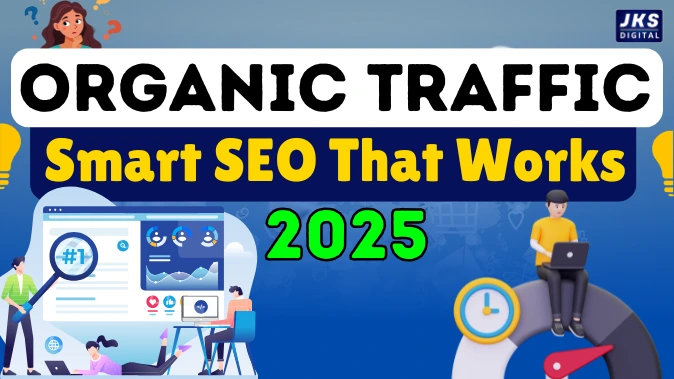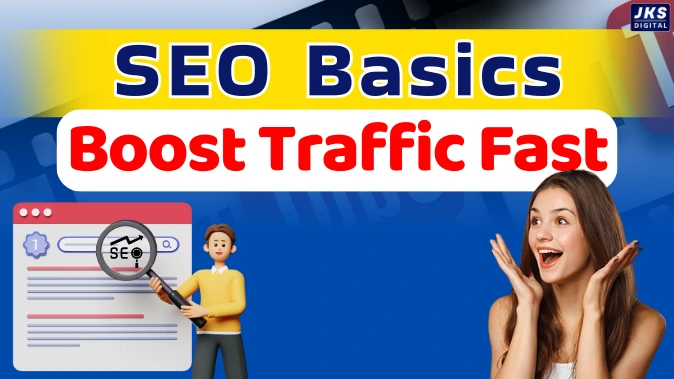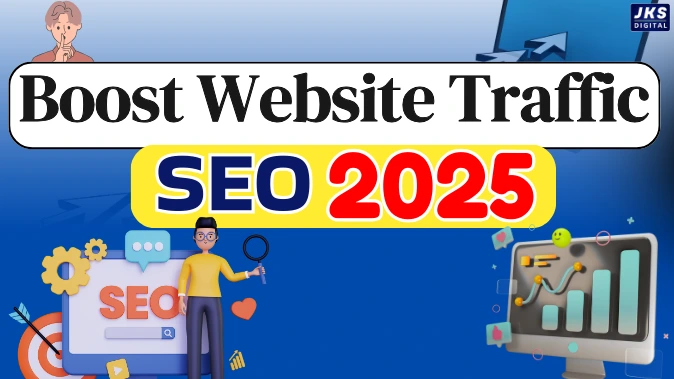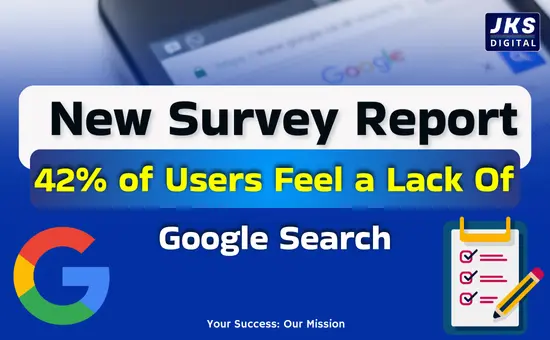Increase Organic Traffic 2025:- In today’s fast-changing digital landscape, organic traffic continues to be the foundation of a strong and lasting online presence. With paid ads becoming more expensive and less trustworthy in the eyes of users, businesses and creators alike are shifting focus back to what truly matters — getting found naturally through search engines.

But let’s be honest — what worked in 2020 or even 2023 no longer guarantees results in 2025.
Google’s algorithms have matured. User behavior has changed. And competition is fiercer than ever.
So, what’s the smartest way to boost organic traffic in 2025?
It’s time to rethink your SEO strategies. Let’s explore the most effective and human-first, data-backed techniques that are already shaping the future of search.
1. Topical Authority Is the New Keyword Game

Gone are the days when stuffing keywords into an article would bring you traffic. In 2025, Google rewards websites that demonstrate expertise, depth, and topical relevance.
Rather than targeting individual keywords, concentrate on creating interconnected content centered around one core theme. Think of it like building a library on a subject instead of writing a random article.
How to implement:
- Choose one core topic (e.g., “email marketing”).
- Create multiple supporting articles (e.g., “best email subject lines”, “how to segment your email list”, etc.).
- Internally link all related posts to build a strong topical network.
This helps Google see you as an authority, not just a content publisher.
2. Search Intent Over Search Volume

In 2025, ranking #1 means nothing if your content doesn’t match user intent. Google’s algorithms are now more focused on solving the searcher’s actual problem, not just matching keywords.
Ask yourself:
- Is the user looking for information, a product, a service, or a quick answer?
- Does your content truly satisfy that need?
For example, if someone searches “how to increase blog traffic”, they probably want step-by-step guidance — not a sales pitch. Deliver value, not fluff.
3. AI-Optimized but Human-Written Content

AI tools like ChatGPT are powerful allies in creating outlines, headlines, and even drafts. But don’t fall into the trap of publishing AI-generated content as-is.
In 2025, Google can identify robotic content and demotes articles that lack originality and human touch.
What works better is a hybrid approach:
- Use AI to structure your ideas.
- Infuse it with personal experience, examples, and opinions.
- Add unique value that AI cannot replicate — like your case studies, failures, or client results.
That’s how you stay relevant and authentic.
4. User Experience is the New SEO

Search engines are smarter, but users are still human. A slow, cluttered, or hard-to-navigate website won’t just frustrate users — it will also hurt your rankings.
In 2025, Google measures user engagement metrics more than ever: bounce rate, dwell time, and page experience all matter.
Key improvements:
- Mobile-first design is no longer optional.
- Page load speed should be under 2.5 seconds.
- Navigation must be intuitive.
- Avoid intrusive popups or auto-playing videos.
- Offer visitors compelling value that encourages them to stay longer and engage with more of your content. Google will reward that behavior.
5. Voice and Visual Search Optimization

With smart devices and AI assistants becoming more mainstream, voice search and visual search are no longer future trends — they are current realities.
People are speaking to search engines more conversationally, and using image searches via tools like Google Lens.
What you can do:
- Optimize content with natural, question-based language (e.g., “How do I increase website traffic fast?”).
- Use schema markup to structure data (like FAQs, reviews, events).
- Add descriptive image alt texts and compress images for fast loading.
- Create short-form content that answers common voice search questions quickly and clearly.
- Instead of “digital marketing”, go for “affordable digital marketing services for startups”.
6. Content Refreshing Strategy

Instead of always creating new posts, go back and update your existing content. In 2025, this remains one of the most powerful yet often underestimated strategies.
Google loves fresh, updated information — especially in fast-changing industries like tech, health, finance, or marketing.
Steps to follow:
- Identify posts that are losing rankings.
- Update stats, links, and examples.
- Add new sections or remove outdated info.
- Republish with the current year in the title if relevant.
This is a smart way to maintain authority while saving time on content production.
7. Long-Tail Keywords with Commercial Intent

Long-tail keywords still work, but now it’s about being strategic. Focus on long-tail phrases that reflect buying or decision-making intent.
Read Also:- Task Mate by Google 2025: Earn Money from Your Phone
Example:
- “Rather than using broad terms like ‘digital marketing’, aim for more specific phrases such as ‘affordable digital marketing services for startups’.”
- “Replace generic keywords like ’email tools’ with precise search terms such as ‘best email marketing software for ecommerce 2025’.”
Use tools like Google’s People Also Ask, AnswerThePublic, or even Reddit to uncover real user queries.
8. Building Communities Around Content

The biggest change in 2025? Search and social are blending.
To increase organic traffic, you must go beyond Google. Promote content where your audience hangs out: LinkedIn, Quora, Medium, X (Twitter), or niche communities.
People discover your content through discussions, shares, and engagement. Google notices those signals too.
Build a content loop:
Post blog ➝ Share on social ➝ Answer on forums ➝ Create short-form video ➝ Drive backlinks.
This multi-platform visibility boosts your authority and SEO at the same time.
Read Also:- Best Digital Marketing Institute in Mukherjee Nagar – JKS Digital
Final Thoughts
SEO today isn’t about outsmarting algorithms — it’s about building genuine connections with your audience.
In 2025, the websites that win are those that understand their audience deeply, deliver real value consistently, and combine creativity with strategy.
Growing organic traffic isn’t driven by trends — it’s rooted in earning your audience’s trust.
So whether you’re a blogger, marketer, or business owner, now is the time to shift your mindset:
From keywords to conversations.
From pages to experiences.
From quantity to quality.
Organic growth takes time, but the results compound — if you’re playing the right game.






